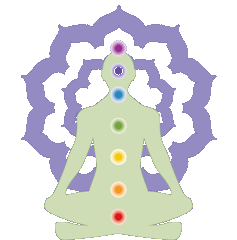When we meditate, our minds encounter obstacles. This is perfectly normal. What matters is how we respond to these obstacles. Tibetan Heart Yoga offers us six "flavors" of response when the mind is being unruly:
1. This too shall pass.
2. I cannot control this now, but I can breathe through it.
3. I put this and myself here for purposes of higher learning.
4. Someone else might even find this pleasant.
5. I can transform this problem into the very path itself which I seek.
6. We must live as gardeners, tending with love whatever surroundings we find ourselves in, internal and external.
We can use any one (or more) of these whenever they feel helpful.
When we meditate, we sometimes expect our mind to become instantly still and for us to have an immediately blissful experience. This is not really how meditation works. It is an exercise and a practice, just like physical yoga. It is important to not become too frustrated at the beginning. The mind wants you to become discouraged, because that way it can stay in control and you will drop all this meditation silliness! Do not listen to the mind. Start slowly, and just start to learn to feel still and stable in your seat. Learn to watch the breath. Remember that this takes time. If I could give you the gift of a quiet mind, I would, but all I can do is try to explain and offer different techniques. It may happen slowly, or it may happen in an instant, but you will get a taste of that supreme inner silence and joy. Once you get this glimpse, no matter how small, you have understood that meditation is not about DOING, it's about NOT DOING! Dropping the mind. Dropping the ego. Simply existing in your divine state, taking complete joy in the breath and in the prana, your life-force energy, flowing through your body.
If you have difficulties meditating, talk to your instructor. There are many different methods and techniques to help you. And you will probably find that by becoming a stronger, more stable, more committed meditator (even if your practice is only 10 min. per day), it will greatly benefit your yogic practice as well. TRY THIS: Meditate for just 5 or 10 min. every morning, as soon as you get out of bed. You can set an alarm. Try to notice if it has a calming/positive effect on your morning and the rest of your day.
Life throws enough demands, busy times, and stress at us. As an act of self compassion, meditation can help us calmly and sanely deal with any area of our lives.
Subscribe to:
Post Comments (Atom)





No comments:
Post a Comment